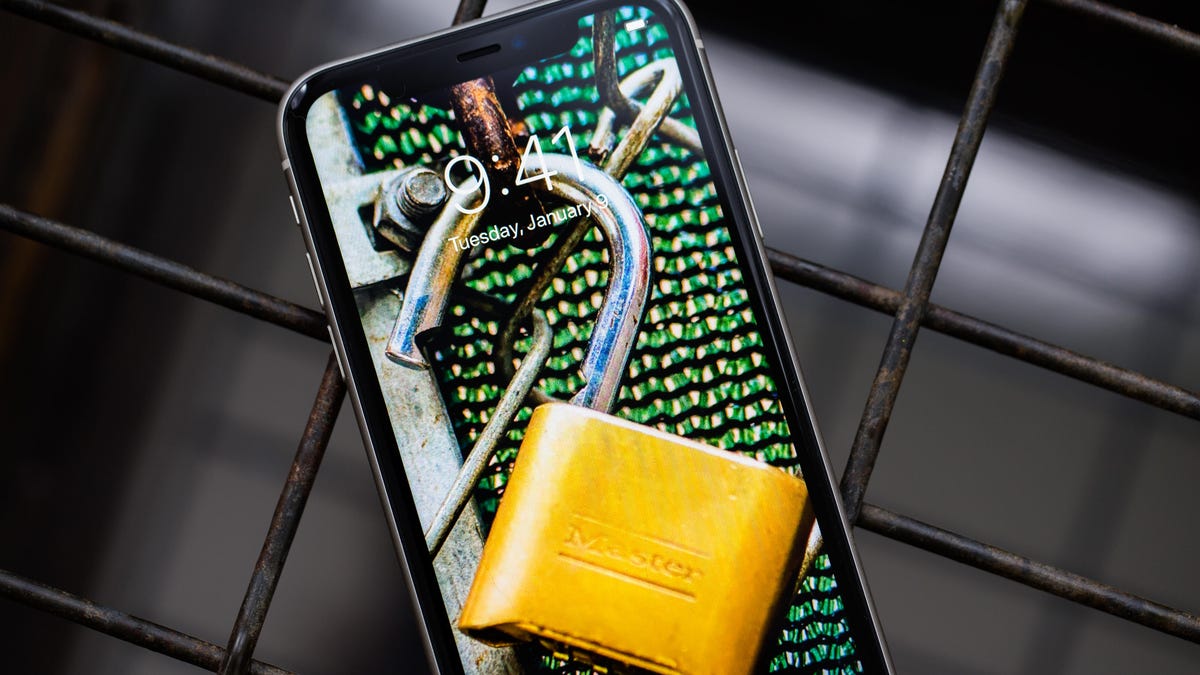FBI slams 'Apple problem' as it unlocks Pensacola shooter's iPhones
The Justice Department says Apple's refusal to break its own encryption hampered a national security investigation.

FBI director Chris Wray said the agency has an "Apple problem."
The Justice Department is criticizing Apple again for declining to break its own encryption, saying that the FBI had to figure out how to unlock a terrorist's iPhones without the tech giant's help. The public reproach is the latest in the FBI's long battle with tech companies over encryption.
On Monday, the agency said that the FBI had unlocked two iPhones belonging to the shooter, Mohammed Saeed Alshamrani, in an incident that took place Dec. 6, 2019, at the Naval Air Station Pensacola in Florida. The shooting killed three sailors and wounded eight other people in what Attorney General William Barr called an act of terrorism.
Information on the iPhones revealed links to the terrorist group Al Qaeda, and evidence gathered from the devices led to counterterrorism actions in Yemen, the Justice Department said.
Even though the FBI was able to unlock the iPhones on its own, Barr slammed Apple for declining to help and slammed tech companies for protecting encryption .
"Thanks to the great work of the FBI -- and no thanks to Apple -- we were able to unlock Alshamrani's phones ," Barr said at a press conference Monday. "The bottom line: our national security cannot remain in the hands of big corporations who put dollars over lawful access and public safety. The time has come for a legislative solution."
The Justice Department has consistently called for tech companies to break their own encryption for criminal investigations, arguing that the security provides cover for terrorists, drug dealers and pedophiles.
Tech companies, including Apple, Facebook and Google , have argued that the same protection keeps millions of people safe from hackers and criminals, and shields political dissidents in oppressive countries.
Experts on encryption have also pointed out that if companies oblige and create "lawful access" that can only be used in criminal investigations, it would create a vulnerability that hackers could potentially exploit.
Apple first referred to a statement it made in January, when the Justice Department and President Trump first called out the company over refusing to break its encryption. The company argued that it had been cooperating with the investigation, and provided "every piece of information available to us."
In a statement published on Monday, Apple called out the FBI over using this case in Pensacola as an attempt to bypass encryption standards.
"The false claims made about our company are an excuse to weaken encryption and other security measures that protect millions of users and our national security," Apple said in a statement. "It is because we take our responsibility to national security so seriously that we do not believe in the creation of a backdoor — one which will make every device vulnerable to bad actors who threaten our national security and the data security of our customers."
FBI Director Chris Wray took issue with Apple's stance on encryption, despite the agency finding methods to unlock the device with its own technical expertise. He argued that developing this technique diverted resources from the FBI for months and hampered its investigation.
"Unfortunately, the technique that we developed is not a fix for our broader Apple problem. It's of pretty limited application. But it has made a huge difference in this investigation," Wray said at the press conference.
US lawmakers have been looking at legislation that would force tech companies to comply with "lawful access" requests -- essentially creating a backdoor to give investigators access to encrypted devices.

